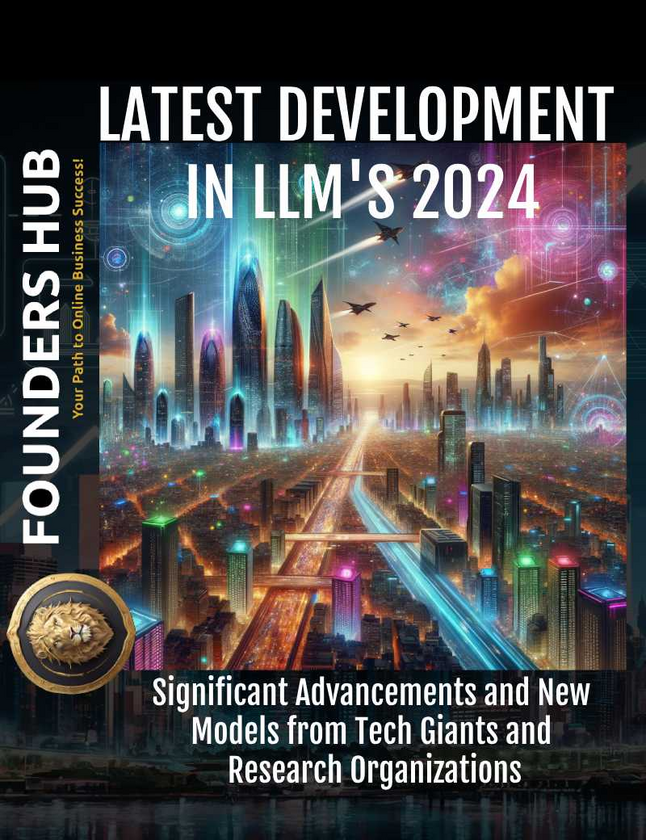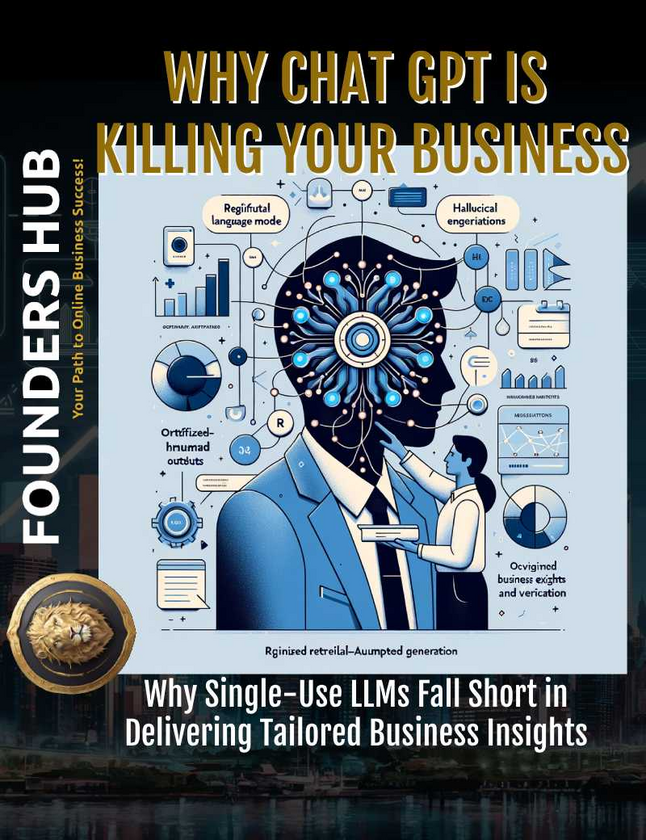Introduction
The field of artificial intelligence (AI) has witnessed remarkable progress in recent years, with large language models (LLMs) emerging as one of the most transformative and impactful technologies. These powerful AI systems, capable of understanding and generating human-like text, have revolutionized the way we interact with machines and have opened up a world of possibilities across various industries.
In 2024, the advancements in LLMs have reached new heights, with tech giants and research organizations unveiling groundbreaking models that push the boundaries of what was once thought impossible. From natural language processing to content creation, these models are reshaping the way we communicate, learn, and solve complex problems.
Key Takeaway Summary: The latest developments in large language models (LLMs) in 2024 have brought about significant advancements and new models from tech giants and research organizations. These models are revolutionizing various industries with their natural language understanding and generation capabilities, multilingual support, and enhanced reasoning skills. However, addressing challenges related to bias, fairness, accountability, and potential misuse remains crucial for the responsible development and deployment of these powerful AI systems.
Overview of LLMs
Large language models are a type of artificial intelligence system that uses deep learning techniques to understand and generate human-like text. These models are trained on vast amounts of data, allowing them to learn patterns and relationships within language. By analyzing this data, LLMs can not only comprehend written text but also generate coherent and contextually relevant responses.
Gemini, a large language model (LLM) developed by OpenAI, represents a significant milestone in the evolution of LLMs. Its unique architecture and capabilities have advanced the field of natural language processing (NLP) and positioned LLMs as powerful tools in various technological applications. Gemini's ability to understand and generate human-like text has revolutionized virtual assistants, chatbots, content creation tools, and language translation services, impacting fields including scientific writing, journalism, psychology, human resources management, healthcare, and education.
Top Models in 2024
GPT-4
Developed by OpenAI, GPT-4 is the latest iteration of the groundbreaking Generative Pre-trained Transformer model. This advanced LLM has taken the world by storm with its remarkable capabilities in natural language understanding and generation.
Capabilities and Applications:
- Advanced Natural Language Understanding and Generation: GPT-4 excels at comprehending and generating human-like text with unprecedented accuracy and fluency, making it a powerful tool for a wide range of applications.
- Content Creation and Customer Support: GPT-4 has proven invaluable in the realm of content creation, assisting writers, marketers, and businesses in generating high-quality, engaging content. Additionally, it has revolutionized customer support by providing intelligent and personalized responses to customer inquiries.
- Coding and Software Development: One of the most exciting applications of GPT-4 is its ability to assist in coding and software development. By understanding programming languages and providing code suggestions, it has become an indispensable tool for developers, streamlining the development process and improving productivity.
- Improvements over GPT-3: Compared to its predecessor, GPT-4 boasts significant improvements in accuracy, context understanding, and the ability to handle more complex tasks. Its enhanced capabilities have opened up new possibilities across various industries.
PaLM (Pathways Language Model)
Developed by Google, PaLM (Pathways Language Model) is a cutting-edge LLM that has garnered significant attention for its multilingual capabilities and advanced reasoning skills.
Multilingual and Reasoning Capabilities:
- Enhanced Support for Multiple Languages and Dialects: PaLM has been trained on data from multiple languages and dialects, making it a powerful tool for global communication and collaboration. Its ability to understand and generate text in various languages has opened up new opportunities for businesses and organizations operating in diverse linguistic environments.
- Improved Reasoning and Logical Capabilities: One of PaLM's standout features is its enhanced reasoning and logical capabilities, particularly in the realm of coding and problem-solving. This makes it an invaluable asset for software development, data analysis, and other tasks that require complex reasoning and logical thinking.
- Applications in Global Communication and Software Development: PaLM's multilingual and reasoning capabilities have made it a go-to solution for businesses and organizations seeking to improve global communication and collaboration. Additionally, its coding and problem-solving abilities have streamlined software development processes, leading to increased efficiency and productivity.
Gemini (Generative Interactive Network for Human-Like AI)
Developed by Google, Gemini is a highly influential LLM that has redefined the field of natural language processing.
Natural Language Processing:
- Conversational AI and Contextual Understanding: Gemini's ability to engage in meaningful and contextually relevant conversations has advanced the capabilities of conversational AI systems. By accurately interpreting and responding to user input, Gemini has significantly improved the quality of interactions in chatbots and virtual assistants.
- Creative Content Generation: Gemini has emerged as a powerful tool for creative content generation, leveraging its ability to understand context and generate coherent narratives. This has found applications in diverse areas such as marketing content creation, storytelling, and adaptive narrative experiences.
- Multimodal Integration: Gemini's innovative multimodal integration allows it to process and generate content across text, audio, and visual formats, enabling seamless interactions and content creation in various mediums. This capability has opened up new possibilities in areas such as advertising, entertainment, and educational content development.
Other Notable Models
While GPT-4, PaLM, and Gemini have garnered significant attention, the field of LLMs is constantly evolving, with various other models making significant contributions.
- T5 (Text-to-Text Transfer Transformer): Developed by Google, T5 is a versatile LLM that can be fine-tuned for a wide range of natural language tasks, including translation, summarization, and question answering.
- XLNet: Introduced by researchers at Google and Carnegie Mellon University, XLNet is an LLM that leverages a novel training technique called "permutation language modeling," which allows it to capture better long-range dependencies in text.
- CTRL (Conditional Transformer Language Model): Developed by Salesforce, CTRL is an LLM designed to generate coherent and controllable text while mitigating the risk of generating harmful or biased content.
These models, along with many others, contribute to the diverse and rapidly evolving landscape of LLMs, each bringing unique capabilities and specializations to the table.
Applications and Impact
The impact of large language models extends far beyond the realm of natural language processing. Their ability to understand and generate human-like text has opened up a myriad of applications across various fields, revolutionizing the way we approach tasks and solve problems.
Field-wise Applications
Scientific Writing and Research
LLMs have become invaluable tools in the field of scientific writing and research. Their ability to understand complex scientific concepts and generate coherent and well-structured text has streamlined the process of drafting and reviewing scientific papers.
- Drafting and Reviewing Scientific Papers: LLMs can assist researchers and scientists in drafting and reviewing scientific papers, ensuring that the content is accurate, well-organized, and adheres to the appropriate formatting and style guidelines.
- Hypothesis Generation and Data Analysis: By analyzing large datasets and identifying patterns, LLMs can help generate hypotheses and provide insights for further research. Additionally, they can assist in data analysis tasks, such as interpreting results and identifying trends.
Chemistry and Drug Discovery
The field of chemistry and drug discovery has greatly benefited from the advancements in LLMs. These models have proven invaluable in predicting molecular structures, understanding chemical reactions, and accelerating the process of drug development.
- Predicting Molecular Structures and Reactions: LLMs can analyze vast amounts of chemical data and predict the structures and properties of molecules, as well as their potential reactions. This information is crucial in the development of new materials and drug candidates.
- Accelerating Drug Discovery and Development: By leveraging LLMs, researchers can streamline the drug discovery process, from identifying potential drug targets to optimizing drug candidates and predicting their efficacy and safety profiles.
Journalism and Content Creation
In the realm of journalism and content creation, LLMs have become indispensable tools for generating high-quality, engaging content while improving productivity and efficiency.
- Automated News Writing and Fact-checking: LLMs can analyze data and generate news articles, reports, and summaries, freeing up journalists and writers to focus on more complex tasks. Additionally, these models can assist in fact-checking and verifying information, ensuring accuracy and credibility.
- Content Marketing and Social Media: LLMs can generate compelling content for marketing campaigns, social media posts, and advertising materials, tailored to specific audiences and objectives.
Psychology and Human Resources Management
The field of psychology and human resources management has also benefited from the advancements in LLMs. These models can assist in analyzing psychological assessments, streamlining recruitment processes, and providing personalized support.
- Analyzing Psychological Assessments: LLMs can process and interpret psychological assessments, providing insights into an individual's personality, cognitive abilities, and emotional intelligence.
- Streamlining Recruitment Processes: By analyzing resumes and job descriptions, LLMs can assist in identifying the best candidates for a particular role, streamlining the recruitment process and reducing bias.
Healthcare and Education
The applications of LLMs in healthcare and education are vast and far-reaching, with the potential to revolutionize the way we approach diagnosis, treatment, and learning.
- Diagnostic Assistance and Personalized Treatment Recommendations: LLMs can analyze patient data, medical records, and research literature to assist healthcare professionals in making accurate diagnoses and recommending personalized treatment plans.
- Creating Educational Content and Personalized Learning Experiences: LLMs can generate educational content tailored to individual learning styles and needs, providing personalized learning experiences that enhance engagement and retention.
Rapid Adoption
The rapid adoption of large language models can be attributed to their scalability and the network effects within the technology ecosystem. As more organizations and individuals embrace these powerful AI systems, the benefits and applications continue to multiply.
Scalability and Network Effects
- Growth of LLMs User Base: As of January 2023, the user base for generative LLMs has surpassed 100 million users, a testament to the widespread adoption and integration of these models across various industries and applications.
- Enterprise-scale Adoption: According to industry reports, 42% of enterprise-scale businesses have already integrated AI into their operations, with an additional 40% considering the implementation of AI solutions in the near future.
- Integration into Workflows: The adoption of generative AI has extended beyond individual use cases, with 38% of organizations reporting the implementation of these technologies into their workflows, and an additional 42% considering such integration.
The rapid adoption of LLMs can be attributed to several factors, including their ability to streamline processes, improve productivity, and provide valuable insights. Additionally, the scalability of these models and the network effects within the technology ecosystem have contributed to their widespread acceptance and integration.
Challenges and Future Development
While the advancements in large language models have been remarkable, there are still challenges and concerns that need to be addressed to ensure the responsible development and deployment of these powerful AI systems.
Bias and Fairness
Addressing Ethical Concerns:
One of the primary challenges facing LLMs is the potential for bias and unfairness. These models are trained on vast amounts of data, which may contain inherent biases or reflect societal prejudices. Identifying and mitigating these biases is crucial to ensure that LLMs provide fair and unbiased outputs.
Strategies for mitigating bias and ensuring fairness in AI systems include:
- Carefully curating and preprocessing training data to remove biases and ensure diverse representation.
- Developing techniques for detecting and correcting biases during model training and inference.
- Implementing fairness constraints and metrics to evaluate and monitor model outputs for potential biases.
- Fostering collaboration between AI researchers, ethicists, and domain experts to address bias and fairness concerns holistically.
Accountability and Governance
Framework Development:
As LLMs become more prevalent and influential, the need for accountability and transparency in their development and deployment becomes paramount. Establishing clear governance frameworks and policies is crucial to ensure the responsible use of these technologies.
Existing governance frameworks, such as the European Union's AI Act and the OECD's Principles on AI, provide guidelines for the ethical development and use of AI systems. However, the rapid pace of innovation in LLMs necessitates the continuous evolution of these frameworks to address emerging challenges and concerns.
Collaboration between policymakers, industry leaders, and AI researchers is essential to develop comprehensive and effective governance frameworks that balance the benefits of LLMs with the need for accountability and responsible innovation.
Potential Misuse
Risks and Mitigation:
While LLMs offer numerous benefits, there are also risks associated with their potential misuse. These include the generation of misinformation, violation of privacy, and the potential for malicious actors to exploit these powerful AI systems for nefarious purposes.
Examples of potential misuse include:
- Generating and spreading disinformation or propaganda through fake news articles or social media posts.
- Impersonating individuals or organizations for fraudulent or malicious purposes.
- Violating intellectual property rights by generating copyrighted content without permission.
To mitigate these risks, ongoing research and collaboration between AI developers, policymakers, and security experts are crucial. Potential solutions include:
- Developing robust techniques for detecting and filtering generated content to prevent the spread of misinformation.
- Implementing strong authentication and verification measures to prevent impersonation and identity theft.
- Enforcing intellectual property rights and establishing clear guidelines for the ethical use of LLMs in content generation.
Ongoing Research and Innovation
Future Directions:
The field of large language models is rapidly evolving, with ongoing research and innovation driving the development of even more advanced and capable models. Collaboration between tech giants, research organizations, and academic institutions is crucial to pushing the boundaries of what is possible.
Some of the future directions in LLM research and development include:
- Improving the ability of LLMs to understand and reason about complex, real-world scenarios and tasks.
- Enhancing the multilingual capabilities of LLMs to support a wider range of languages and dialects.
- Developing more efficient and scalable training methods to reduce the computational resources required for training large models.
- Exploring the integration of LLMs with other AI technologies, such as computer vision and robotics, to create multimodal AI systems.
- Investigating techniques for enhancing the interpretability and explainability of LLM outputs, improving transparency and trust in these systems.
As research in this field continues, it is expected that the next generation of LLMs will be even more powerful, capable, and impactful, further transforming the way we interact with technology and approach complex problems.
Conclusion
The latest developments in large language models in 2024 have ushered in a new era of AI-powered communication, problem-solving, and innovation. From GPT-4's advanced natural language capabilities to PaLM's multilingual support and Google's Gemini context understanding, these models are revolutionizing various industries and opening up new possibilities.
However, as we embrace the potential of LLMs, it is crucial to address the challenges and concerns surrounding bias, fairness, accountability, and potential misuse. Ongoing research, collaboration, and the development of robust governance frameworks are essential to ensure the responsible and ethical development and deployment of these powerful AI systems.
As we look towards the future, the advancements in LLMs are poised to continue, with tech giants and research organizations pushing the boundaries of what is possible. The next generation of LLMs promises even greater capabilities, further transforming the way we approach tasks and solve problems across various domains.
In this rapidly evolving landscape, it is essential for businesses, organizations, and individuals to stay informed and embrace the potential of LLMs while remaining vigilant and proactive in addressing the challenges that arise. By doing so, we can harness the power of these transformative technologies while ensuring their responsible and ethical use, paving the way for a future where AI and human intelligence work in harmony to drive progress and innovation.
To keep up with the inovations in LLM's and App development join us today



















